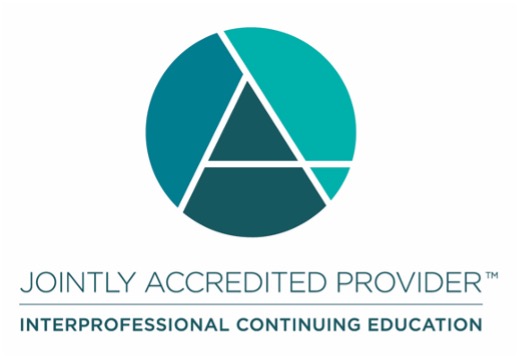Clinical Strategies to Combat Food Allergies and Intolerances
The field of food allergy and food intolerance is very complex and confusing. While approximately 1 in 10 U.S. adults have a food allergy, nearly twice as many US adults believe they have a food allergy. Food intolerances are often mistaken for food allergies. Food allergies can be life-threatening, whereas food intolerances are rarely a severe health concern. Adding further to the confusion, the management, and assessment of food allergies may vary from clinic to clinic.
Currently, the standard of care for food allergies and intolerances is limited to allergen avoidance or treatment of symptoms. Nevertheless, new and emerging therapies are showing promise. For example, studies show that oral and sublingual immunotherapy can desensitize people with food allergies; an early introduction of peanut-containing foods can prevent the development of peanut allergy in many children; and supplementation with probiotics and vitamin D can induce immune tolerance and may prevent food-induced reactions.
Food allergy is a serious public health burden and is steadily increasing in prevalence. Approximately 8% of children have a food allergy, and 40 % of those children have multiple food allergies. Food intolerance affects 15% to 20% of the population and is also on the rise. In both conditions, nutrition and dietetics practitioners play a critical role in maintaining nutritional adequacy, particularly when staple foods are excluded for extended periods. Furthermore, many people are needlessly avoiding foods solely based on results of unproven and costly food sensitivity testing. RDNs and NDTRs need to lead the way in providing expert guidance on the management of food allergies and intolerances. That is why it is imperative that they stay well-informed about this widespread and growing public health problem.
This continuing education activity is designed to help you earn 12.0 continuing education credits for dietetics (CDR CPEU).
Learning Objectives
After completing this activity, nutrition professionals will better be able to:
- Discuss the various types of food allergies and food intolerances: their pathophysiology, clinical manifestations, and how they differ.
- Provide expert dietary management of food allergies and intolerances in accordance with evidence-based recommendations.
- Educate patients on the recommended methods of food allergy testing and proper follow-up versus unproven and misleading food sensitivity testing.
- Counsel parents on the critical importance and safety of the new guidelines for the early introduction of allergenic foods, namely peanuts.
- Describe allergic conditions associated with a food allergy, including eosinophilic esophagitis and food-dependent exercise-induced anaphylaxis.
Additional Information
Robert Iafelice, MS, RD, LDN, is a freelance medical writer and member of the American Medical Writers Association. He has contributed several chapters to the 6th edition of Disease Prevention and Treatment, a medical reference book of evidence-based protocols to combat the diseases of aging. Among the protocols he authored, “Celiac Disease and Non-Celiac Gluten Sensitivity” is particularly relevant to this CPE program.
Robert received a Bachelor of Arts degree in Chemistry from Miami University in Oxford, Ohio, and a Master of Science degree in Nutrition Science from Case Western Reserve University in Cleveland, Ohio. Most of his experience as a practicing registered dietitian was in the field of integrative/functional medicine with a focus on food allergy. Robert provided medical nutrition therapy at an integrative allergy-immunology clinic in Chicago, where he specialized in conducting double-blind, placebo-controlled food challenges – the gold standard for food allergy diagnosis.
Robert’s diverse background also includes extensive experience in fitness/wellness as a gym owner, university nutrition instructor, health educator in the nutraceuticals industry, and oncology. His other writing interests include intermittent fasting, nutritional ketosis, and high-intensity interval training.
Disclosures:
Robert Iafelice, MS, RD, LDN, faculty for this activity, has no relevant financial relationship(s) with ineligible companies to disclose.
The planners for this educational activity have no relevant financial relationship(s) with ineligible companies to disclose.
An “ineligible company” includes any entity whose primary business is producing, marketing, selling, re-selling, or distributing healthcare products used by or on patients.
 In support of improving patient care, Great Valley Publishing Company (publisher of Wolf Rinke Associates) is jointly accredited by the Accreditation Council for Continuing Medical Education (ACCME), the Accreditation Council for Pharmacy Education (ACPE), and the American Nurses Credentialing Center (ANCC), to provide continuing education for the healthcare team.
In support of improving patient care, Great Valley Publishing Company (publisher of Wolf Rinke Associates) is jointly accredited by the Accreditation Council for Continuing Medical Education (ACCME), the Accreditation Council for Pharmacy Education (ACPE), and the American Nurses Credentialing Center (ANCC), to provide continuing education for the healthcare team.
This activity will also award credit for dietetics (CDR CPEU).
RDs and DTRs are to select activity type 102 in their Activity Log. Sphere and Competency selection is at the learner’s discretion.
Available Credit
- 12.00 CDR

 Facebook
Facebook X
X LinkedIn
LinkedIn Forward
Forward